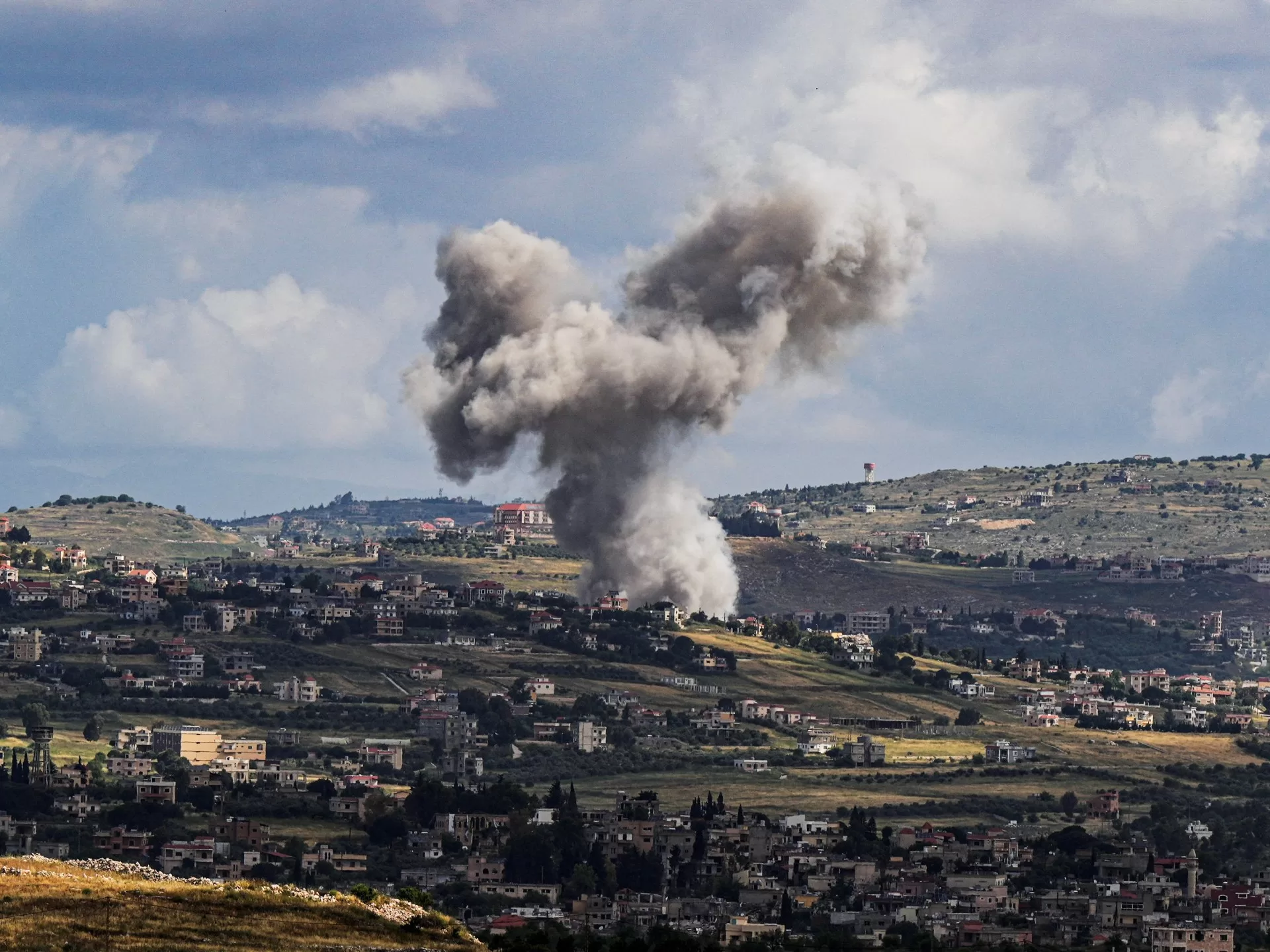The fighting between Israel and the Lebanese armed group, a Hamas ally, has intensified over the past week, with Israel striking deeper into Lebanese territory, raising concerns that an even wider conflict could break out between the heavily armed adversaries.
“We are prepared for a very intense operation in the north. One way or another, we will restore security to the north,” Netanyahu said during a visit to the border area.
Hezbollah said later that it launched several attacks on Israeli positions during the day, including a “guided missile” strike on an “Iron Dome platform in the Ramot Naftali barracks”. Iron Dome is Israel’s air defence system.
In past weeks, Israel has ramped up its targeting of Hezbollah members and allied Palestinian and Lebanese fighters in cars and on motorbikes in Lebanon.
National Security Minister Itamar Ben-Gvir and Finance Minister Bezalel Smotrich, members of Netanyahu’s far-right coalition partners, have both called in recent days for immediate action.
“They burn us here, all Hezbollah strongholds should also burn and be destroyed. WAR!” Ben Gvir said on Tuesday in a Telegram post.
Smotrich said on Monday: “We must move the security strip from inside Israeli territory in the Galilee to southern Lebanon, including a ground invasion, occupation of the territory and distancing Hezbollah terrorists and hundreds of thousands of Lebanese among whom Hezbollah hides to the other side of the Litani River,” nearly 30km (20 miles) north of the border.
Israeli Chief of the General Staff Herzi Halevi said on Tuesday that the army was ready to move to an offensive in the north.
“We are prepared after a very good process of training up to the level of a General Staff exercise to move to an offensive in the north,” he said in a recorded statement. “We are approaching a decision point.”
‘Many actors are no longer rational’
Israeli air strikes have pounded areas in southern Lebanon and struck the Bekaa Valley near the Syrian border.
The Israeli attacks have killed about 300 members of Hezbollah since October 7 and about 80 civilians. Strikes from Lebanon on Israel have killed 18 Israeli soldiers and 10 civilians, the Israeli military said.
The hostilities have been the worst between Israel and Hezbollah since they went to war in 2006, and tens of thousands of people on both sides of the border have been forced to leave their homes.
Deputy Hezbollah leader Sheikh Naim Qassem told Al Jazeera on Tuesday that the group’s decision was not to widen the war but it would fight one if it was imposed on it. He said Hezbollah had used a small part of its capabilities, and any move by Israel to expand the conflict would be met by “devastation, destruction and displacement” in Israel.
Qassem also said the Lebanon front would not stop until the Gaza war stops.
According to Karim Bitar, an associate research fellow with the Institute for International and Strategic Affairs in Paris, the risk of an escalation between Israel and Hezbollah “has considerably increased”.
“Even though it is in nobody’s interest to see a wider escalation, it appears that many actors are no longer rational,” he told Al Jazeera. “Emotions are running extremely high, and any miscalculation could lead to a wider conflagration.”
Israel could, however, get “more than what it bargained for” if it decides to attack Lebanon, Bitar said.
“Hezbollah is considerably stronger than Hamas, and the events of the past few months have shown that Israel was unable to eradicate Hamas,” he said.
“If Israel attacks, it will be a devastating blow for Lebanon, but it will also prove to be very counterproductive for Israel,” Bitar added.
Meanwhile, the United States Department of State said Washington does not want to see a full-blown war and it is trying to pursue a diplomatic solution, adding that Israel has the right to defend itself.
The US considers Hezbollah a “terrorist group”.
Hezbollah has signalled its eventual openness to an agreement that benefits Lebanon but has said there can be no discussions until Israel halts the Gaza offensive – something mediators are struggling to achieve.
Past wars have inflicted heavy damage. In 2006, Israeli strikes levelled large areas of Beirut’s Hezbollah-controlled southern suburbs, knocked out Beirut airport, and hit roads, bridges and other infrastructure.
In Israel, the impact included 300,000 people fleeing their homes to escape Hezbollah rockets. About 2,000 homes were destroyed.
Hezbollah has a far bigger arsenal than in 2006, including rockets it says can hit all areas of Israel.
It has demonstrated advances in its weaponry since October, shooting down Israeli drones, launching its own explosive drones into Israel and firing more sophisticated guided missiles.
